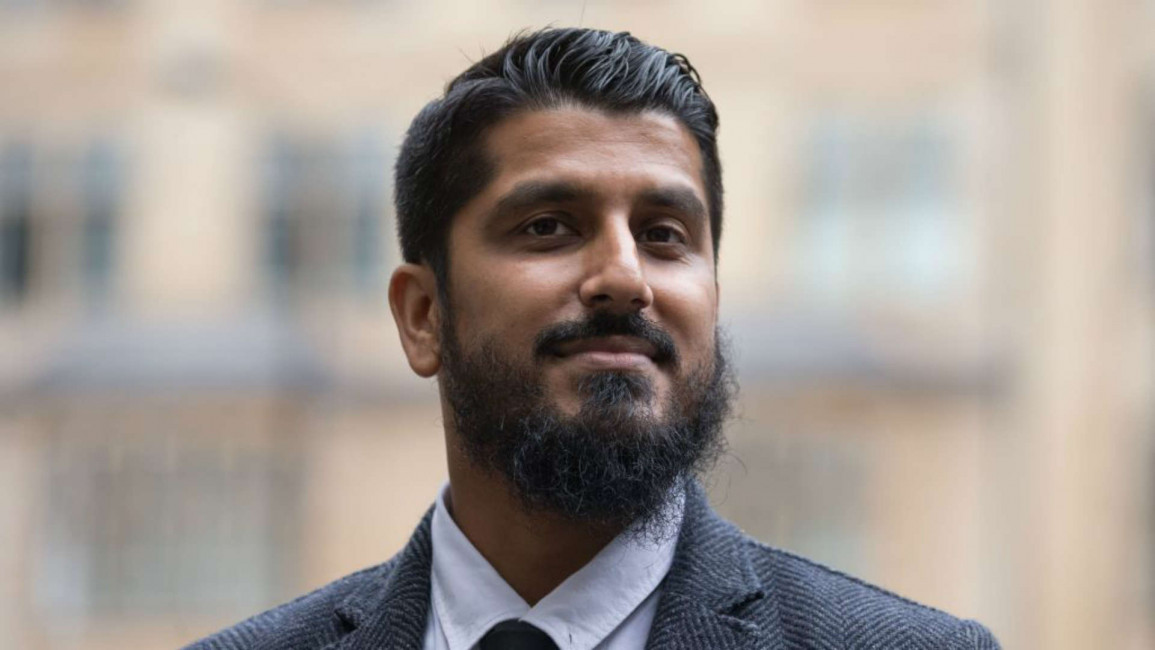
Call security measures by their name: Racial discrimination and Islamophobia
The Human Dimension Implementation Meeting - an annual event organised by the Office for Democratic Institutions and Human Rights - brings together government representatives from over 50 states. The purpose of the conference is to explore among many things, state inequality and discrimination in both political and public life.
Many civil liberties activists and campaigners from across the member states were also in attendance to highlight human rights violations and the undermining of the rule of law.
I joined a coalition of groups from the UK, US and France which included Defend the Right to Protest, CAGE, the Justice & Liberties For All Committee, the Council on American-Islamic Relations (CAIR) and Muslim Arc.
Our aim? To show the double standards exercised by each of our countries and the disastrous global scale of the so-called "War on Terror".
Amid a climate of rising hate, the British, American and French states are all guilty of escalating hostility, discrimination and state violence towards Muslims and other minorities.
The reality is one of warrantless home raids, the ransacking of mosques, Muslim-owned businesses and the intimidation of communities as well as political leaders. Each of us has been both witness to and victim of these practices, which made confronting our representatives all the more important.
 |
The reality is one of warrantless home raids, the ransacking of mosques, Muslim-owned businesses and the intimidation of communities |  |
The most powerful part of the trip was hearing Muhammad Rabbani tell his story to a hall filled with every official delegation to the conference. After being stopped at the airport under Schedule 7 of the Terrorism Act, Rabbani was asked for the passwords to his electrical devices, which he refused to handover.
His refusal, Rabbani explained to the officers, was based on his obligation to protect the confidential information he held, relating to a torture case Rabbani was working on, that implicates the US government. He was arrested and had to stand trial with the threat of imprisonment. This, despite both the arresting officers and the prosecution making clear that he was not being suspected of committing any crime.
Rabbani spoke about the injustice he is forced to systematically endure each time he arrives at an airport, of the 20 or more times he has been interrogated by counter-terrorism police officers - including just before stepping onto the plane to Warsaw.
 |
|
| Muhammad Rabbani addresses delegates at the HDIM meeting in Warsaw [Credit: Malia Bouattia] |
The CAGE Director turned to his left where the 'United Kingdom' plaque sat and directly confronted the UK delegation about their self-righteous tweet, earlier that day - about the rule of law serving as the backbone of any modern democracy.
He stated that such preaching was dishonest given the UK's continuous actions outside of the rule of law directed against Muslims and other racialised communities.
Mr Rabbani is one of around 50,000 people interrogated every year by British authorities under Schedule 7 of the UK Terrorism Act 2000. This provision, which means an individual can be held for up to six hours without the right to silence or without officers having to demonstrate reasonable suspicion, operates on the notion of pre-crime.
This effectively means that countless innocent people who have committed no crime are still treated as criminals, stopped, and forced to give their details to police. This stop and search exercise is often the outcome of racial profiling and Islamophobia at our boarders, with people of colour 42 times more likely to be stopped than their white counterparts.
 |
People of colour are 42 times more likely to be stopped at our borders than their white counterparts |  |
Muslims make up the vast majority of these numbers. Rabbani urged member states and policy makers "to pause and think: Where we have reached as a society, when an innocent man can be sent to prison for a password? Are these laws making us safer? Or are they normalising authoritarian tendencies in the name of 'fighting terrorism'?."
Unsurprisingly there was no direct response to Rabbani on the day, and the usual rhetoric of security was dished up. But getting answers wasn't the sole purpose of his statement. The interruption of "business as usual" in such spaces is always necessary, as part of a range of wider tactics used by any grassroots movement.
Twitter Post
|
We recounted a handful of stories, including my public experiences of institutional racism as the first Muslim, Woman of Colour and Refugee NUS President, and those of the countless young people whose lives have been ruined by the PREVENT agenda.
French and American activists shared their stories of discrimination and harassment, though there are countless others that demonstrate the double standards, systematic discrimination and intolerance of our so-called modern democracies. The extra-judicial killings, torture of innocent civilians, continued existence of Guantanamo and the stripping of civil liberties whenever the state chooses, are but a few examples.
After the conference we visited the last remaining signs of the Warsaw Ghetto, where hundreds of thousands of Jews were held like cattle, awaiting death by hunger, disease, or deportation to the camps. The lessons of the most horrific consequences of dehumanisation, institutionalised racism, and the denial of basic rights to specific groups of people were staring us in the face.
I imagine our respective governments would have laughed at the idea that a group of students, journalists, trade unionists, campaigners and community leaders were demanding they respect the rule of law, but in reality this has been the case throughout history.
Justice has been a demand of the many from below, and it will continue to be as long as it is denied. In the words of Muhammad Rabbani, who won his moral victory on Monday following his trial: "The war on terror has been a disaster at home and abroad and it must be brought to an end."
Malia Bouattia is an activist, the former President of the National Union of Students, and co-founder of the Students not Suspects/Educators not Informants Network.
Follow her on Twitter: @MaliaBouattia
Opinions expressed in this article remain those of the author and do not necessarily represent those of The New Arab, its editorial board or staff.




